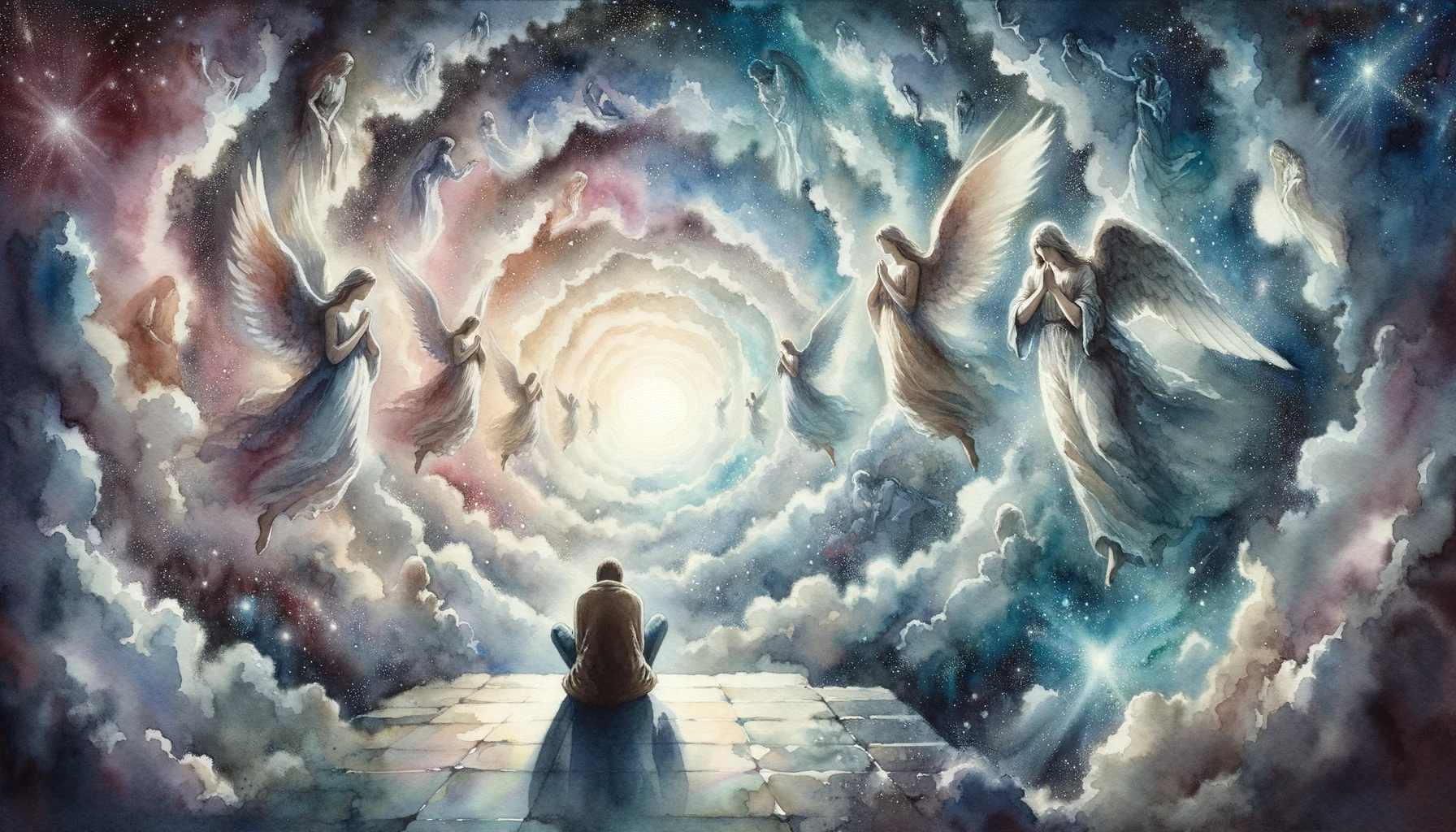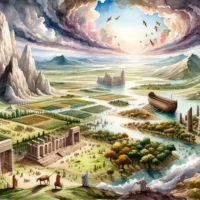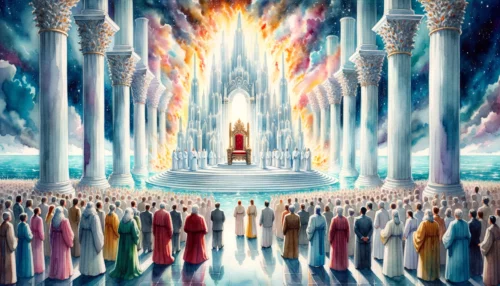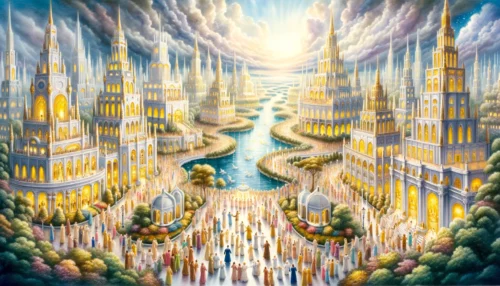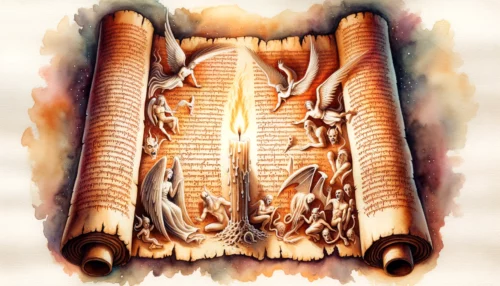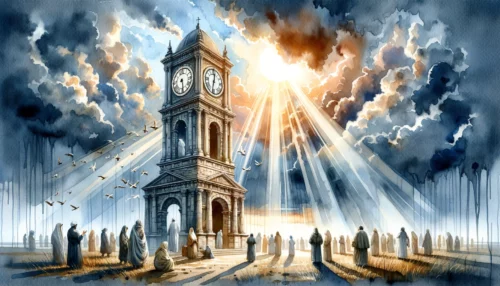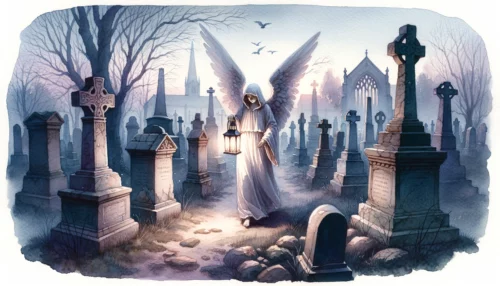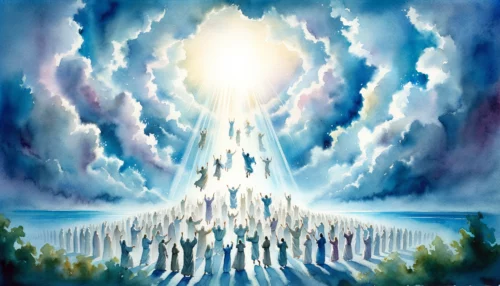We often contemplate the mystery of God’s creation, seeking to understand His intentions and His actions. One intriguing aspect of this divine creation that has sparked discussions among believers throughout history is the creation of angels, particularly those who were given the freedom to defy God. Understanding this issue can help us better appreciate the richness of God’s wisdom and His plan for all creation. Thus, we invite you to join us in exploring this challenging question from a biblical perspective.
Understanding the Nature of Angels
Angels, as presented in the Bible, are spiritual beings created by God. They exist in the heavenly realm, unseen by human eyes, but often serve as God’s messengers or agents to our earthly world. Angels are typically portrayed as possessing great power and wisdom, and they are often involved in carrying out God’s will (Hebrews 1:14).
Contrary to popular depictions, angels aren’t human beings who have passed on, nor are they eternal beings. They were created by God at a certain point in time. While the Bible doesn’t specify when angels were created, it suggests that they were present when God laid the foundations of the earth (Job 38:4-7).
One of the most striking aspects of angels is their moral capacity. Like human beings, angels possess the ability to make moral choices. Evidence of this can be seen in the rebellion of certain angels against God, which resulted in their fall from heaven (2 Peter 2:4).
However, angels are not all-knowing or omnipotent like God. They are limited in their knowledge and power. For instance, they don’t know the day or the hour of Christ’s return, as that knowledge belongs only to God (Matthew 24:36).
In terms of hierarchy, the Bible speaks of different ranks among angels. Michael, for example, is referred to as an archangel, suggesting a higher status (Jude 1:9). Cherubim and seraphim are other categories of angels mentioned in the Bible, each with distinct roles and appearances (Genesis 3:24; Isaiah 6:2).
Angels, as spiritual beings, possess the ability to make moral choices. They are powerful, wise, and serve as messengers or agents of God. However, they are not eternal or omniscient and have limits to their knowledge and power. This understanding will help us as we consider the question of angels’ free will and their capacity for rebellion.
The Freedom to Choose: Angels and Free Will
In both human beings and angels, free will can be understood as the capacity to make choices that are genuinely one’s own and not determined by external forces. This is a critical aspect of moral responsibility: in order to be held accountable for our actions, we must be free to choose between right and wrong.
This principle can be seen in the narrative of the fall of Satan and his angels (Revelation 12:7-9). Satan, originally one of God’s most magnificent angels, chose to rebel against God. This rebellion was not a result of God’s design or decree, but rather emerged from Satan’s own pride and ambition (Isaiah 14:12-14; Ezekiel 28:12-17).
It’s important to clarify here that God did not create rebellion or evil. Rather, He created beings with the capacity for moral choice, and some of these beings chose to use this capacity in ways that were contrary to God’s will. This doesn’t mean God made a mistake or lost control. He knew the potential outcomes of granting free will but chose to do so out of His desire for genuine love and relationship, not forced obedience.
God is wholly good and incapable of creating evil, yet He allows for the possibility of evil as a necessary condition of free will. He respects the autonomy of His creatures, allowing them to make their own decisions and bear the consequences, whether good or evil.
Angels, like humans, were granted free will. This freedom allowed them to choose, leading some to remain faithful to God while others, led by Satan, chose rebellion. God did not create evil or rebellion. Instead, He created beings capable of moral choice, and some chose a path contrary to His will. This freedom is a necessary condition for genuine love and moral responsibility, reflecting God’s respect for the autonomy of His creatures.
The Purpose Behind the Rebellion: A Divine Perspective
A pivotal question remains: why would a good and perfect God allow angels to rebel? The answer to this question lies in understanding God’s character and ultimate plan.
God’s character is defined by perfect love, justice, and holiness. Part of love is the respect for the other’s freedom, including the freedom to reject. True love is not coercive but allows for the freedom of the other. Therefore, God, in His perfect love, allowed angels the freedom to accept or reject Him (1 John 4:8).
God is also perfectly just. This means He holds His creation accountable for their choices. When angels chose to rebel, God did not ignore or negate their decision, but held them accountable. This justice is seen in the judgment and punishment that followed their rebellion (2 Peter 2:4).
The rebellion also serves God’s ultimate purpose, which is to manifest His glory. God’s glory is the revelation of His divine attributes and character. By allowing the possibility of evil, God’s attributes of love, mercy, justice, and holiness are more fully displayed. For example, in responding to rebellion with justice and mercy, God’s character is made manifest. This is seen in the redemption story, where God’s justice demanded payment for sin and His love provided that payment through Christ (Romans 3:23-26).
God is not the author of evil or rebellion. However, He can use even these to serve His purposes and display His glory (Genesis 50:20). While we may struggle to understand this in our limited human perspective, we can trust in God’s wisdom and goodness.
God allowed angels the freedom to rebel as a part of His perfect love, justice, and ultimate purpose. God’s perfect love respects freedom, His justice holds beings accountable for their choices, and His ultimate purpose is to display His glory. Even in the face of rebellion and evil, we see God’s character made manifest, and His wisdom and goodness affirmed.
Reflecting on Divine Wisdom
We’ve journeyed through a challenging question, seeking to comprehend why God would create angels with the capacity to defy Him. The answers we’ve found lead us back to the nature of God Himself: His perfect love, justice, and His purpose of manifesting His glory. Through this exploration, we gain a richer understanding of God’s wisdom and His divine plan, even in the face of rebellion.
To continue this journey of understanding, we invite you to ponder on these questions:
- How does the concept of free will in angels influence your view of God’s love and justice?
- In what ways does the rebellion of angels magnify God’s attributes of mercy, justice, and love?
- How does understanding the nature and purpose of angels deepen your faith and relationship with God?
Our quest for understanding may lead us to challenging questions, but let us be encouraged by the words of the Apostle Paul: “Oh, the depth of the riches of the wisdom and knowledge of God! How unsearchable his judgments, and his paths beyond tracing out!” (Romans 11:33). Let’s keep seeking, keep asking, and keep knocking, for our God delights in revealing Himself to those who seek Him with all their heart.




